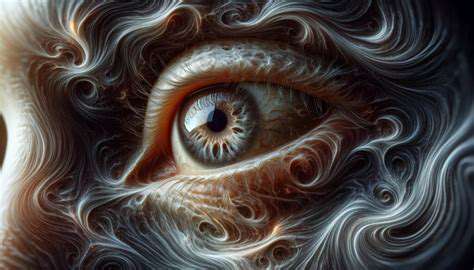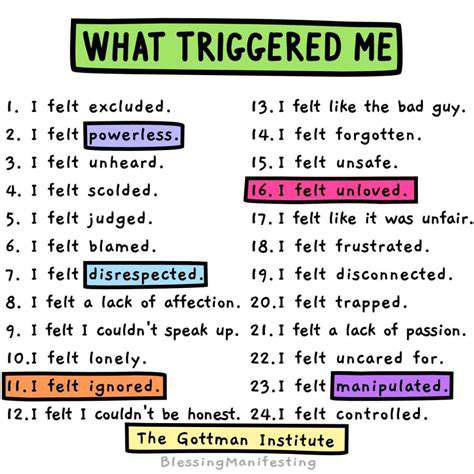How Anxiety Can Trigger Eye Twitching: A Deep Dive
The Connection Between Anxiety and Eye Twitching

The Physiological Impact of Anxiety
Anxiety can induce a range of physiological responses in the body. When anxiety levels rise, the body goes into a state of hyperarousal, which can lead to various muscle tensions. This tension can undeniably affect the muscles around the eyes, resulting in twitching.
Recognizing these physiological responses is crucial in understanding why anxiety-related symptoms occur. Addressing the root cause—anxiety—can thus help alleviate symptoms such as eye twitching.
Common Triggers of Anxiety-Induced Eye Twitching
Several triggers can initiate anxiety and, consequently, eye twitching. Stressful situations, such as public speaking or tight deadlines, often elevate anxiety levels, causing muscle spasms. Other common triggers include excessive caffeine intake, lack of sleep, and prolonged screen time.
Understanding these triggers can help individuals manage their anxiety more effectively. Implementing stress-relief techniques and lifestyle adjustments may diminish the occurrence of eye twitching.
Keeping a diary of anxiety triggers can also provide insights into the patterns that provoke symptoms, leading to better management strategies.
Strategies to Alleviate Eye Twitching Related to Anxiety
There are numerous strategies that individuals can employ to reduce eye twitching related to anxiety. Relaxation techniques such as deep breathing, yoga, and meditation can significantly lower anxiety levels. Engaging in these practices may not only help with anxiety but also directly reduce the frequency of eye twitching.
Regular physical activity is another effective way to manage stress and anxiety. Exercise releases endorphins, which act as natural stress relievers and can help relax tense muscles around the eyes.
Moreover, ensuring sufficient hydration and nutrition can support overall muscle function and reduce the likelihood of twitching episodes.
When to Seek Professional Help
While occasional eye twitching due to anxiety is common, persistent or severe twitching may require professional intervention. If the twitching is accompanied by other concerning symptoms, such as vision changes or facial spasms, seeking medical advice is crucial. A healthcare professional can help determine whether the eye twitching is merely a symptom of anxiety or indicative of a larger medical issue.
Therapists or counselors specializing in anxiety disorders can provide valuable support. They can teach coping mechanisms and relaxation techniques tailored to the individual’s unique circumstances.
In some cases, medication may be necessary to manage anxiety levels effectively, leading to a reduction in symptoms like eye twitching.
Long-Term Effects of Untreated Anxiety on Eye Health
If anxiety remains untreated over a prolonged period, it can lead to chronic symptoms, including frequent eye twitching. Such persistent muscle spasms can strain the surrounding tissues, potentially leading to more severe eye issues. Moreover, the constant distraction of twitching can cause fatigue and impact overall quality of life.
Along with eye twitching, prolonged anxiety can affect sleep patterns and overall mental health, further compounding issues related to vision and eye care. It’s important to monitor these symptoms and address both mental and physical health needs proactively.
Taking steps to manage anxiety not only helps with eye twitching but also promotes better overall well-being and long-term eye health.
What Causes Eye Twitching During Anxiety?
Understanding the Link Between Anxiety and Eye Twitching
Eye twitching, or myokymia, is a common condition that many people experience, particularly in times of stress or anxiety. When we encounter anxiety-inducing situations, our bodies enter a heightened state of alertness, which can lead to muscle tension and spasms. Eye muscles are particularly sensitive to this tension, making them susceptible to twitching.
This connection between anxiety and eye twitching is primarily due to the body’s fight-or-flight response. During this response, the release of stress hormones such as adrenaline can cause involuntary muscle contractions. Eye twitching can be viewed as a physical manifestation of this stress response, reminding us how deeply interconnected our mental and physical states are.
Additionally, fatigue and lack of sleep are often symptoms of anxiety that can further exacerbate the condition. When someone is experiencing anxiety, they may not be getting adequate rest, leading to increased twitching. Understanding this relationship can help individuals identify their triggers and seek effective coping strategies.
Coping Mechanisms for Eye Twitching Linked to Anxiety
Recognizing the connection between anxiety and eye twitching opens the door to several coping mechanisms that can help alleviate both issues. First and foremost, practicing relaxation techniques such as deep breathing, meditation, and yoga can significantly reduce stress levels. By calming the mind, individuals may find relief from both anxiety and its physical manifestations.
Additionally, maintaining a regular sleep schedule is crucial. Ensuring that you get enough rest not only helps in reducing anxiety but also decreases the likelihood of eye twitching. Adequate sleep allows the body to recover from stress and keeps the muscles, including those around the eyes, relaxed.
Lastly, limiting caffeine and other stimulants can also be beneficial. These substances can intensify both anxiety and muscle contractions, leading to increased twitching. Instead, opting for hydration with water or herbal teas can foster a calmer state, helping to curb the cycle of anxiety-related eye twitching.
Identifying Triggers and Symptoms

Common Triggers of Eye Twitching
Eye twitching, medically known as myokymia, can be influenced by various triggers. Stress and anxiety are among the most prominent factors that lead to involuntary muscle spasms around the eyes. When individuals find themselves in high-pressure situations, their body's response can manifest in physical ways, such as twitching.
Another common trigger is fatigue. Lack of sleep can significantly impair muscle function and coordination, leading to twitches. It's essential to prioritize rest and ensure adequate sleep to reduce the likelihood of eye twitching caused by exhaustion.
Caffeine intake is also linked to muscle spasms, including eye twitching. Consuming excessive amounts of caffeine can stimulate the nervous system and cause heightened muscle activity. Reducing caffeine consumption can be beneficial for those who experience frequent twitches.
Lastly, environmental factors such as exposure to bright lights or prolonged screen time can lead to eye strain. Eye strain is a significant contributor to twitching, emphasizing the need for regular breaks during prolonged activities that require focused vision.
Recognizing Symptoms of Eye Twitching
The most obvious symptom of eye twitching is the involuntary spasm itself, usually felt around the eyelid. It often appears as a quick, repetitive movement that can last for a few seconds to several minutes. Understanding this symptom is the first step towards addressing the underlying cause.
Many individuals may also experience accompanying symptoms, such as a feeling of heaviness in the eyelid or sharp headaches. These sensations can exacerbate the discomfort caused by twitching. It's vital to pay attention to these associated symptoms as they might indicate heightened anxiety levels.
In addition to physical symptoms, anxiety-related eye twitching can affect mental well-being. Many people find that the twitching becomes a source of concern, leading to increased focus on the eye area which can perpetuate the cycle of anxiety. This cycle can create a feedback loop that exacerbates both the anxiety and the twitching symptoms.
Early recognition of these symptoms can aid individuals in seeking appropriate interventions. Understanding that eye twitching could be a physical manifestation of stress may prompt one to explore relaxation techniques or stress management strategies.
Managing Anxiety-Induced Eye Twitching
To effectively manage anxiety that contributes to eye twitching, several strategies can be implemented. Engaging in regular relaxation practices, such as deep breathing or meditation, can significantly reduce overall anxiety levels and thereby lessen the incidence of twitching.
Incorporating physical activity into daily routines can also be beneficial. Exercise releases endorphins, which are natural stress relievers. Finding activities that one enjoys encourages consistency in managing stress, ultimately leading to fewer episodes of eye twitching.
Furthermore, maintaining a balanced diet and staying hydrated can support overall nervous system health. Nutritional deficiencies can exacerbate muscle spasms, so ensuring a diet rich in vitamins and minerals is crucial for reducing the frequency of twitches.
If eye twitching persists despite these measures, consulting with a healthcare professional may be wise. A medical professional can help determine whether further interventions, like therapy or medication, are necessary to address underlying anxiety issues effectively.
Management Strategies for Eye Twitching Linked to Anxiety
Understanding the Connection Between Anxiety and Eye Twitching
Eye twitching, or myokymia, can often be linked to anxiety and stress levels. The body's stress response may manifest in various physical symptoms, with eye twitching being a prevalent one. When a person experiences anxiety, the release of stress hormones can lead to muscle contractions, resulting in twitching.
Moreover, heightened anxiety often leads to increased caffeine intake or sleep disturbances, both of which can exacerbate eye twitching. It's essential to recognize that the mind-body connection is powerful, and mental strain can translate into physical symptoms.
Understanding how anxiety affects our physical state can empower individuals to address both their mental and physical health. Acknowledging that eye twitching can be a symptom of anxiety rather than just an isolated issue can guide individuals toward more holistic management strategies.
While twitching is usually harmless and temporary, it can serve as a signal that the underlying anxiety needs to be addressed. Recognizing this link is the first step toward effective management and relief.
Effective Coping Mechanisms for Reducing Anxiety-Related Eye Twitching
One effective coping mechanism is the practice of mindfulness and relaxation techniques. Engaging in activities such as deep breathing, meditation, or yoga can help calm the nervous system, potentially reducing instances of eye twitching triggered by anxiety.
Another strategy involves maintaining regular sleep patterns. Sleep deprivation can worsen anxiety levels and contribute to physical symptoms like eye twitching. Setting a sleep schedule and ensuring a restful environment can significantly improve overall well-being.
Additionally, monitoring and reducing caffeine and alcohol intake can be beneficial. Both substances can heighten anxiety and contribute to muscle spasms. Instead, opting for herbal teas or other calming beverages can help mitigate eye twitching symptoms.
Regular physical exercise also plays a crucial role. Engaging in physical activity not only reduces stress but also promotes better sleep quality. Whether it's a brisk walk, gym session, or yoga class, incorporating movement can have a vast array of health benefits.
Seeking Professional Help for Persistent Eye Twitching
If eye twitching persists despite implementing self-care strategies, seeking professional help may be advisable. A healthcare provider can assess whether the twitching is purely anxiety-related or if there are other underlying conditions to consider.
Cognitive-behavioral therapy (CBT) is one effective treatment option for anxiety management. CBT helps individuals identify and challenge negative thought patterns and behaviors, which can reduce overall anxiety levels and diminish related symptoms like eye twitching.
In some cases, medication may be prescribed to help manage anxiety. Antidepressants or anti-anxiety medications can regulate the chemicals in the brain that influence mood, potentially providing relief from both anxiety and its physical manifestations.
Ultimately, it's essential for individuals to recognize that they are not alone in experiencing anxiety-related symptoms. Seeking assistance from a mental health professional not only provides support but also helps in developing a comprehensive plan to manage anxiety and its effects on physical health.